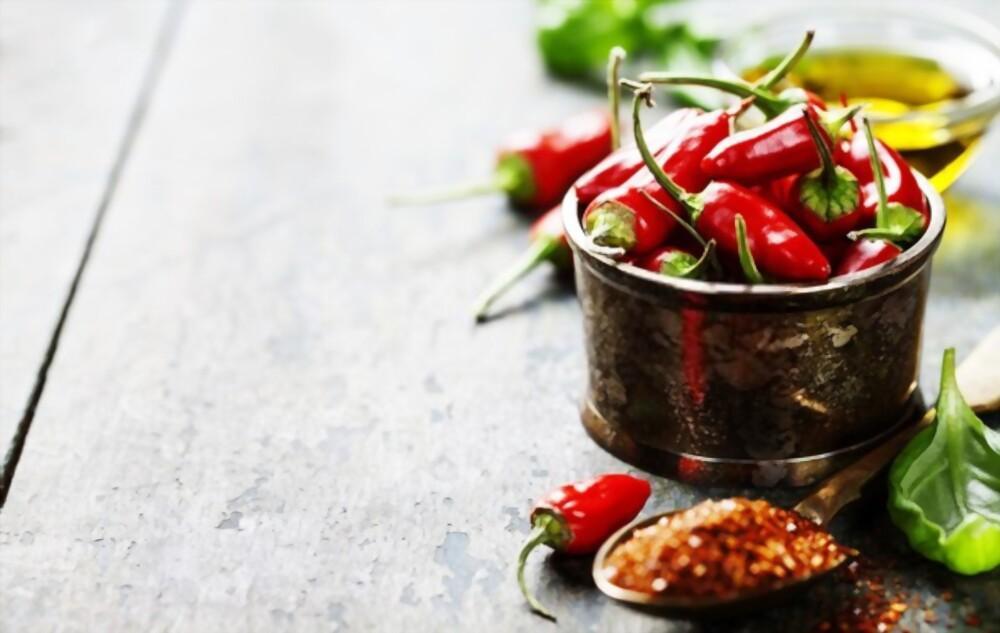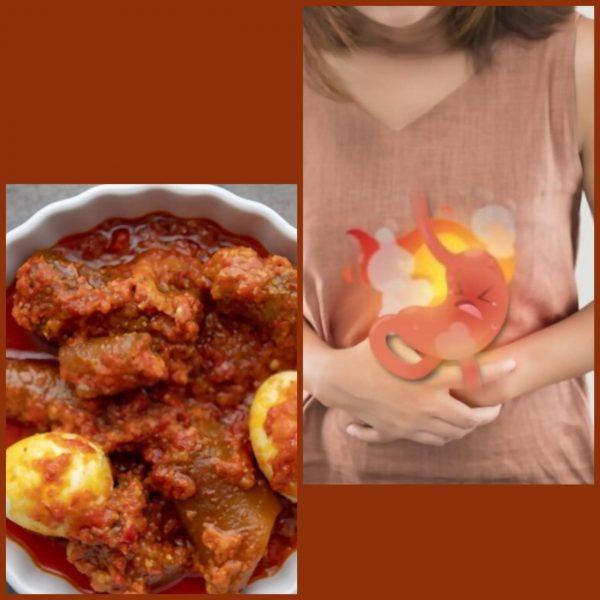Pepper Doesn’t Cause Stomach Ulcers; Here’s What Does…

There’s some confusion about whether spicy foods are healthy or dangerous. Here, I want to shed some evidence-based light on eating spicy foods to separate fact from fiction.
Many cases of peptic ulcer disease develop either because bacteria are eating away the protective lining of the digestive system or people frequently take pain relievers.
Join our WhatsApp ChannelThis sect of people is more likely to develop ulcers. Normally, a thick layer of mucus protects the stomach lining from the effect of its digestive juices but misuse of some pain relief drugs can reduce this protective layer, allowing stomach acid to damage the tissue leading to Peptic Ulcer.
What is Peptic Ulcer?
Peptic ulcer disease is a condition where painful sores or ulcers develop in the lining of the stomach, lower oesophagus and in the first part of the small intestine(the duodenum) which gives rise to 3 types of ulcers.
1. Gastric ulcers: ulcers that develop inside the stomach.
2. Esophageal ulcers: ulcers that develop inside the oesophagus
3. Duodenal ulcers: ulcers that develop in the upper section of the small intestines, called the duodenum
Who is more likely to get a Peptic Ulcer?
One in 10 people develops an ulcer. Risk factors that make ulcers more likely include:
1. Frequent use of nonsteroidal anti-inflammatory drugs (NSAIDs), a group of common pain relievers that includes Diclofenac, ibuprofen (Advil® or Motrin®).
2. Having a family history of ulcers or illness such as liver, kidney or lung disease.
3. Regular drinking of alcohol.
4. Smoking.
These different factors can cause the lining of the stomach, the oesophagus, and the small intestine to break down. These include:
1. Helicobacter pylori (H. pylori), a type of bacteria that can cause a stomach infection and inflammation. About 50% of the world’s population has an H. pylori infection, often without any symptoms. Researchers believe people can transmit H. pylori from person to person.
2. Frequent use of aspirin (Bayer), ibuprofen (Advil), and other anti-inflammatory drugs. Acetaminophen (Paracetamol) is not an NSAID and won’t cause damage to your stomach. People who can’t take NSAIDs are often directed to take acetaminophen.
Not everyone who takes NSAIDs will develop ulcers. NSAID use coupled with an H. pylori infection is potentially the most dangerous. People who have H. pylori and who frequently use NSAIDs are more likely to have damage to the mucus layer, and this can be more severe.
3. smoking and drinking too much alcohol: Alcohol in excessive quantities irritates the stomach lining, making it red, raw, and inflamed, Bleeding may develop a condition, known as Gastritis
4. Excess stomach acidity, or hyperacidity: This can occur for a range of reasons, including genetics, smoking, stress, or some certain foods like oranges.
READ ALSO: Constipation: That Hard Stuff That Makes You Cringe!
Can spicy foods cause ulcers?
Spicy foods don’t cause ulcers. Contrary to popular belief, multiple studies show that capsaicin in pepper actually inhibits acid production in the stomach. Don’t be quick to blame spicy foods and then ignore the fact that taking ibuprofen ‘around the clock’ or having a bacteria called H. Pylori are one of the world’s most common causes of ulcers.
Although spicy foods don’t cause ulcers, they can trigger abdominal pain or irritation. One study specifically highlighted that excessive and frequent consumption of spicy foods can trigger upper gastrointestinal symptoms in some people with Gastrointestinal disorders like; dyspepsia (or, indigestion), or, Intestinal Bowel disease, Crohn’s disease or ulcerative colitis).
Outlook for peptic ulcers
With proper treatment, most peptic ulcers heal. However, you may not heal if you stop taking your medication early or continue to use tobacco, alcohol, and nonsteroidal pain relievers during treatment. Your doctor will schedule a follow-up appointment after your initial treatment to evaluate your recovery. Some ulcers, called refractory ulcers, don’t heal with treatment. If your ulcer doesn’t heal with the initial treatment, this can indicate excessive production of stomach acid or the presence of bacteria other than H. pylori in the stomach or another disease, such as stomach cancer or Crohn’s disease.
Avoiding misuse of Pain relief drugs like Ibuprofen, maintaining a healthy lifestyle by quitting smoking cigarettes and other tobacco use and eating a balanced diet rich in fruits, vegetables, and whole grains will help you avoid developing a peptic ulcer.














Awesome 👍🏻
This was very informative.. Thank you Doctor.
This is dope 👍👌 thank you